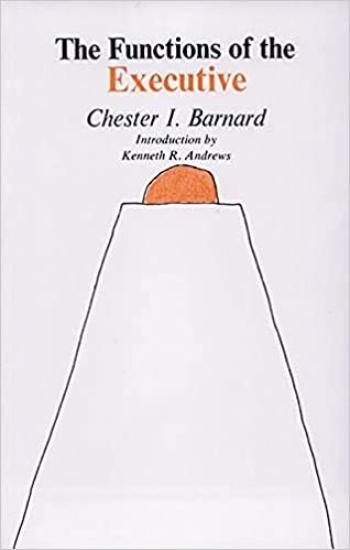
Rating: ****
Tags: Business & Economics, Economics, General, Lang:en
Publisher: Harvard University Press
Added: July 9, 2021
Modified: November 5, 2021
Summary
Most of Chester Barnard’s career was spent in
executive practice. A Mount Hermon and Harvard education, cut
off short of the bachelor’s degree, was followed by
nearly forty years in the American Telephone & Telegraph
Company. His career began in the Statistical Department, took
him to technical expertness in the economics of rates and
administrative experience in the management of commercial
operations, and culminated in the presidency of the New Jersey
Bell Telephone Company. He was not directly involved in the
Western Electric experiments conducted chiefly at the Hawthorne
plant in Cicero, but his association with Elton Mayo and the
latter’s colleagues at the Harvard Business School had an
important bearing on his most original ideas. Barnard’s
executive experience at AT&T was paralleled and followed by
a career in public service unusual in his own time and hardly
routine today. He was at various times president of the United
Services Organization (the USO of World War II), head of the
General Education Board and later president of the Rockefeller
Foundation (after Raymond Fosdick and before Dean Rusk),
chairman of the National Science Foundation, an assistant to
the Secretary of the Treasury, a consultant to the American
representative in the United Nations Atomic Energy Committee,
to name only some of his public interests. He was a director of
a number of companies, a fellow of the American Association for
the Advancement of Science and of the American Academy of Arts
and Sciences. He was a lover of music and a founder of the Bach
Society of New Jersey.